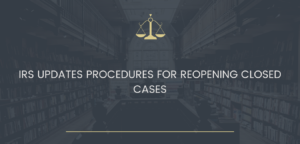What Do You Do When You Owe Taxes But Don’t Have the Funds?
For many people tax season brings the joy of a nice big refund to go out and splurge on something they’ve had your eye on for a long time. On the flip side of the equation are those people who surprisingly, or not, end up owing the IRS money. Not only do these people miss out on the extra cash influx, but they also have to come up with the funds to pay off the extra tax bill.
For some people, depending how high the bill is, they could have to pay even more than just the shortage amount. That’s because many times when people underpay they end up owing penalties for the underpayment. For those who owe a lot of money, those penalties could end up being huge. In fact, the penalties can even be much higher than the shortage.
That’s why it’s always best to try to avoid owing any money to the IRS, especially if you don’t have the funds to pay it off when the tax bill comes due. So what happens to people who can’t pay their tax bill? You do have a few options.
In some cases, it might be a good idea to take out a loan or a line of credit in order to pay off the bill. Of course, you will then be responsible to pay off the loan, so use caution. Another option is to apply for an extension with the IRS. This could buy you a little time to come up with the needed funds. If you need even more time then try applying for a hardship extension, which could give you up to six months to pay it off. You could also ask the IRS for permission to set up a payment plan to pay off the debt in installments.
Whichever path you decide to take, make sure you do something. Don’t ignore the problem or it will only get worse. The penalties will likely increase the longer you wait and the IRS could eventually take other measures or even press charges. So the bottom line is: do something.
Tax Preparation Help: 5 Tax Deduction Myths
Tax Preparation Help: 5 Tax Deduction Myths By Ronn Espy There are a wealth of tax deduction myths, rumors and plain old wives tales during every tax season. Many opt not to get professional tax preparation help and file their own taxes based on misinformation, only to regret it later when the IRS comes calling.…
Is The IRS Above the Law?
Is The IRS Above the Law? By Alan Olsen, CPA, MBA (tax) Managing Partner Greenstein Rogoff Olsen & Co. LLP Have you ever wondered how the IRS truly operates? Have you ever contacted someone from the IRS with a tax problem or question and discovered that the person on the other end of the line…
IRS Updates Procedures for Reopening Closed Cases
IRS Updates Procedures for Reopening Closed Cases IRS issued Rev. Proc. 2005-32 On May 20, 2005, the IRS issued Rev. Proc. 2005-32, which updates procedures for reopening closed examinations under §7605(b) and describes when a case is deemed closed after examination. It also provides a nonexclusive list of contacts and actions by the IRS that…
Year-End Tax Tips For Investments
Year-End Tax Tips For Investments By Glenn Dahlke Yes, its that time of year again, time for every financial column to drum into your head all the year-end investing tax tips. It’s the equivalent of your list to Santa. You either take care of it by year-end or you take your chances. Consider yourself warned.…




